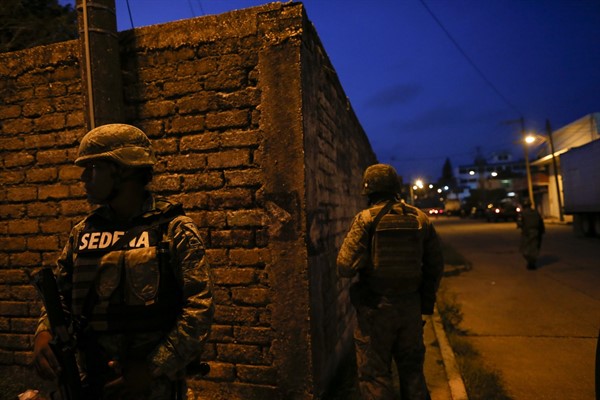The United States and Mexico have experienced a significant number of setbacks in their security cooperation over the past year. Although policy differences, mutual accusations of wrongdoing and a degree of distrust have always been inherent aspects of the bilateral relationship, U.S. and Mexican administrations since the late 1990s had generally found ways to work together on the principal issues affecting them. This pragmatic approach was severely tested during former U.S. President Donald Trump’s administration, particularly after the populist Andres Manuel Lopez Obrador, popularly known as AMLO, became president of Mexico in December 2018.
With Trump out of office, AMLO had an opportunity to start a much-needed rapprochement with Washington to address increasingly interconnected security issues, ranging from a spike in violence in Mexico to the threat of transnational organized criminal groups and the constant flows of undocumented migrants through Mexico en route to the U.S. But instead of proposing meaningful bilateral solutions to these problems, AMLO has amped up his nationalist rhetoric while often disregarding Mexico’s democratic institutions and flouting the rule of law. Hopes for progress under Biden are quickly fading, as the disagreements between Washington and Mexico City seem to far outnumber the issues on which they can find accord.
The latest sign of fraying ties between the two neighbors came on Aug. 4, when the Mexican government filed a lawsuit in U.S. federal court against 11 American gun manufacturers for actively facilitating the flow of weapons to Mexican organized criminal groups. Mexican officials have long denounced the illicit flow of powerful firearms across the border from the U.S. as a major contributor to drug-related violence in Mexico. Although the lawsuit has low odds of succeeding in its aim to curb the flow of arms to Mexico, it is a breakthrough development that highlights Mexico’s frustration at the perceived inaction of their American counterparts to address this issue.

